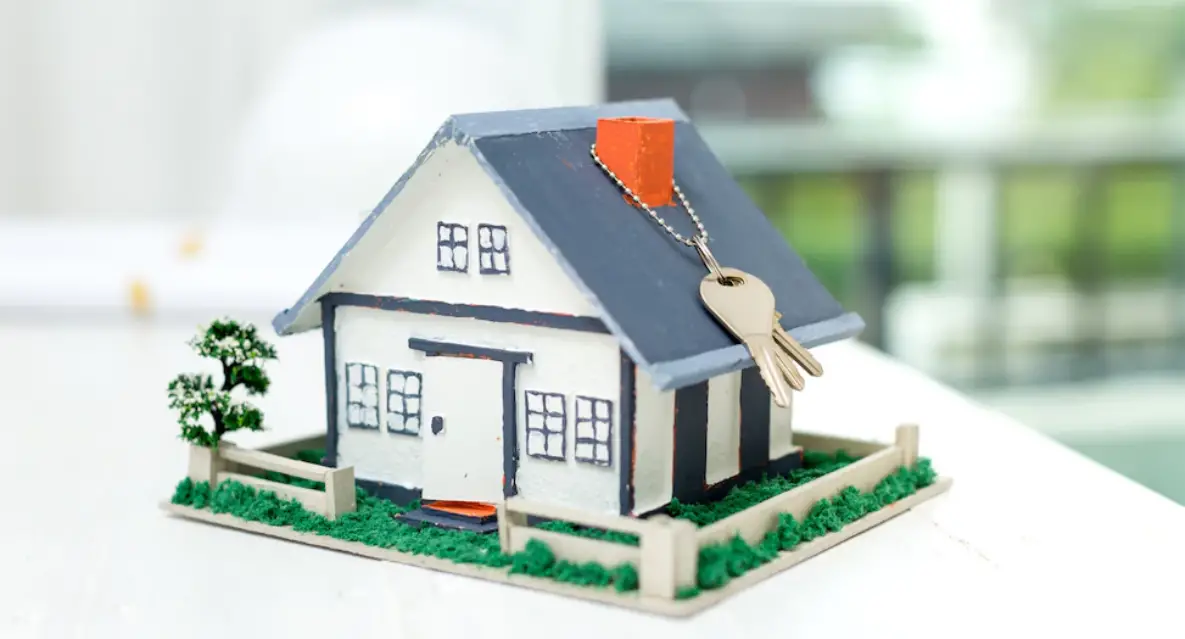Landlords looking to increase rent often have the fear of losing good tenants. Obviously, you want to retain qualified tenants, so you might not want to raise the rent. But increasing costs, such as insurance, utilities, taxes, and expenses, eat into profits. So how can landlords provide value to their tenants that justify rent increases? In this article, we discuss alternative ways to earn money from your rentals. We also share tips on how to attract interest from tenants and how to go about providing proper notice before a rent increase.
![]() Also Read: Rent Pricing: How Much To Charge For Rent?
Also Read: Rent Pricing: How Much To Charge For Rent?
Note: This wraps up our series exploring the best ways to increase rent. You can read our other installments here:
- Part 1: 6 Rental Property Renovations That Will Boost Your Income
- Part 2: Collect Fees for Pets in Rental Property
- Part 3: Furnished Rental Apartments
- Part 4: Submetering Water and Electricity Utilities vs RUBS
- Part 5: Additional Sources of Rental Income
- Part 6: Top 8 Apartment Amenities Renters Want
- Part 7: Tips to Make Your Rental Listing Stand Out
- Part 8: How to Write a Rent Increase Notice
Can a Landlord Increase Rent?
Yes, landlords can increase the rent when a fixed-term lease comes to end, unless the lease has terms and conditions that allow you to raise the rent in the middle of the term. If you have a month-to-month lease, you can increase rent at the start of a new rental period. However, you need to give a proper rent increase notice, typically at least 30 days.
These are our top ways to increase rent and boost your rental income:
Rental Property Renovations to Boost Your Rental Income
One of the most effective ways landlords can increase rent is through renovations and upgrades. By making your property more attractive, you can make your rental more appealing to a wider pool of potential tenants.
Start with fixing or replacing any broken fixtures and appliances, such as a broken dishwasher, a faulty light, or a leaky tap. Most of these fixture issues are easy to repair and don’t need extensive work. You may also want to upgrade flooring by either getting your carpet professionally cleaned or replacing it with hardwood flooring.
Two spaces that have some of the highest returns on the money you can spend on renovation are the kitchen and the bathroom. So focus on improving the overall look and functionality of both these rooms. You may also paint the walls and improve landscaping to spruce up the appeal of your rental.
Read the complete article: Best Ways to Increase Rent: 6 Rental Property Renovations That Will Boost Your Income
Allow Pets and Collect Pet Fees and Rent
By allowing pets on your rental property, you can generate more money by charging monthly pet rent along with pet deposits or non-refundable pet fees. Most renters will be eager to pay the additional charges, as there aren’t always many pet-friendly rentals out there.
If you aren’t looking to charge additional fees, you may simply increase monthly rent for allowing pets on your property. Landlords with pet-friendly rentals can increase their gross rental income by up to 5% or more. Check out our pet calculator to see how much additional income you can earn.
Read the complete article: Best Ways to Increase Rent: Collect Fees for Pets in Rental Property
Furnish Your Rental
Furnishing your rental property is another way to boost your rental income. Although you may have to bear additional costs upfront, a furnished property can help you increase rent and boost your return on investment.
Furnishing your property will also widen your potential tenant pool by attracting short- and medium-term tenants such as corporate housing and travelling nurses, families new to an area because of job relocation, people renovating their existing home and needing a place to live temporarily, or families going through changes such as divorce or downsizing.
Read the complete article: Best Ways to Increase Rent: Furnished Rental Apartments

Submeter Utilities or Implement RUBS
Landlords can also charge for things they were giving away for free, such as utilities. You can bill back tenants for utilities by either submetering water, electricity, and natural gas or implementing a Ratio Utility Billing System (RUBS).
By installing a submeter on every rental unit for each utility, you can measure and record actual consumption and then bill renters at each utility company’s normal rates. As a result, you’ll only have to pay for any energy use in common or shared areas.
On the other hand, RUBS allows you to charge a prorated amount of the entire property’s utility bill for each unit or resident. This method is quick to implement and needs a lower upfront investment, while you can recover a large portion of your overall utility expenses.
Read the complete article: Best Ways to Increase Rent: Submetering Water and Electricity Utilities vs RUBS
Create Additional Sources of Rental Income
Often there are new sources of rental income right under your nose. Maybe you’re already including services as part of the rent, such as laundry facilities, that you can charge extra for. For instance, if the property has a shared laundry room with washers and dryers, you can turn it into a coin-operated laundry. Alternatively, you may install a washer and dryer into each unit and charge higher rent. Some renters are willing to pay as much as 20% more rent for an in-unit washer/dryer.
You may also have underutilized spaces that you can optimize for another use. For example, if you have unused storage space, you might be able to create individual, secure spaces or lockers to rent out to your tenants. Another great idea is to increase your rentable square footage by adding an accessory dwelling unit (ADU), either in existing space in your building or by creating new units on your property.
Read the complete article: Best Ways to Increase Rent: New Sources of Rental Income
Understand Which Amenities Renters are Looking For
As a landlord, you need to understand what tenants want and how you can make their experience more comfortable. Offering some extra amenities in your rental property can differentiate your listing from others, generate more interest, and help you increase rent. You may also boost your rental income by charging residents a separate monthly or yearly amenity fee.
Some of the popular amenities that you can include in your rental are outdoor spaces like a rooftop deck or a community garden, pet-friendly facilities such as a dog park or pet washing facilities, high-speed internet, in-unit laundry, air conditioning unit, a reserved parking space, a secure package delivery room, and smart home technology.
Read the complete article: Best Ways to Increase Rent: Top 8 Apartment Amenities Renters Want
Create a Rental Listing That Attracts More Tenants
Landlords also need to make sure that their listing and advertising are useful in order to increase rent and maximize their return. Once you’ve added new amenities and renovated the property, you need to highlight these features to grow and attract the tenant pool.
The key is to create a detailed and compelling property description. Include the size of the property, the number of bedrooms and bathrooms, in-unit amenities, availability, rent amount, length of lease, security deposit, amenity fees, application and screening fees, as well as contact information.
Also, add high-quality photos and video tours of every room and other living spaces, exteriors, and any common areas. But before taking photos and videos or even scheduling viewings, consider staging your property with suitable furniture and decorations for greater impact.
Read the complete article: Best Ways to Increase Rent: Tips to Make Your Rental Listing Stand Out
Provide a Proper Rent Increase Notice
For a vacant property, you can list it with a new rental price. However, if your existing lease is expiring, you can still increase the rent but only after sending a rent increase notice.
Month-to-month leases typically require a 30-day notice, and a long-term lease needs 30 to 60 days of notice period before the lease expires. Landlords must give this notice to the tenant in writing delivered personally or by first class or certified mail, depending on local laws.
How much you can increase the rent? This will also depend on local landlord-tenant laws. So make sure you follow all rules and regulations for giving your tenants a notice to increase rent.
Read the complete article: How to Write a Rent Increase Notice
How to Increase Rent: Landlord Gurus Takeaway
Managing rentals is a business. As a landlord, you need to balance between keeping tenants in your property and maximizing return. Over time, costs go up in every business, including the rental property business. So you need to boost your rental income in order to offset those costs. It can be difficult to increase rent. But if done right, you can still keep your best tenants and run a profitable business.
Note: Landlord-tenant laws change rapidly and may be regulated at the federal, state and local levels. This resource is not a substitute for the advice or service of an attorney.
Disclosure: Some of the links in this post are affiliate links and Landlord Gurus may earn a commission. Our mission remains to provide valuable resources and information that helps landlords manage their rental properties efficiently and profitably. We link to these companies and their products because of their quality, not because of the commission.




